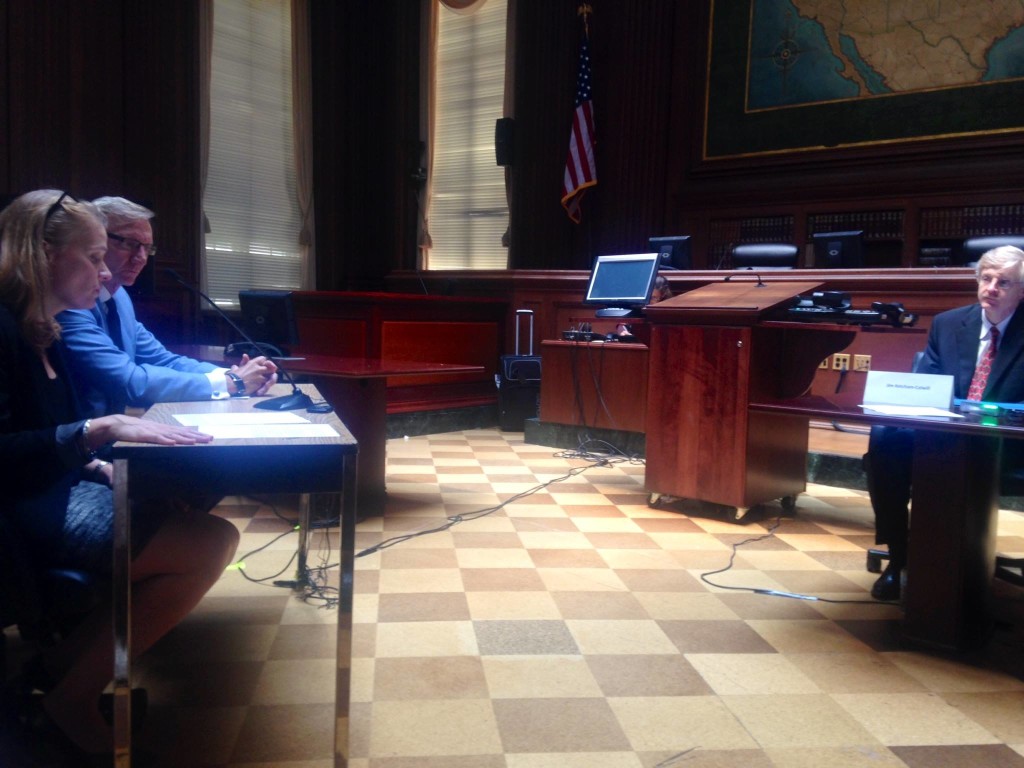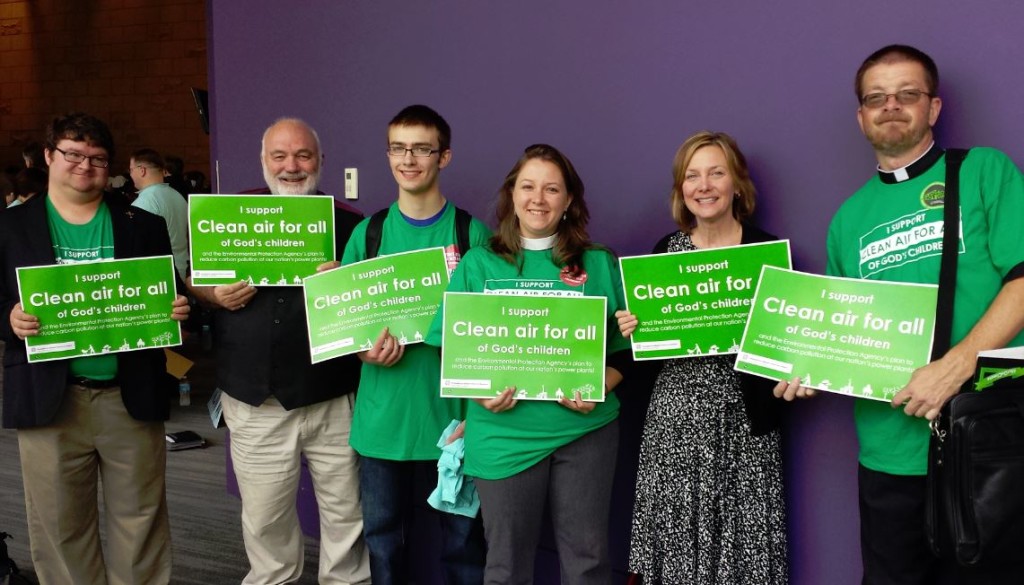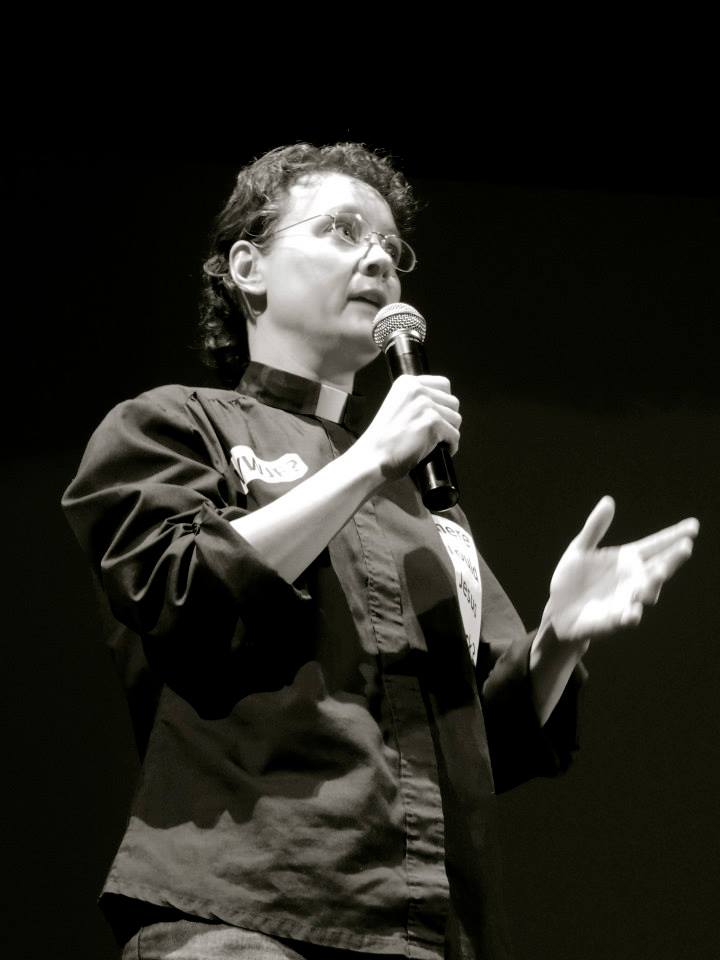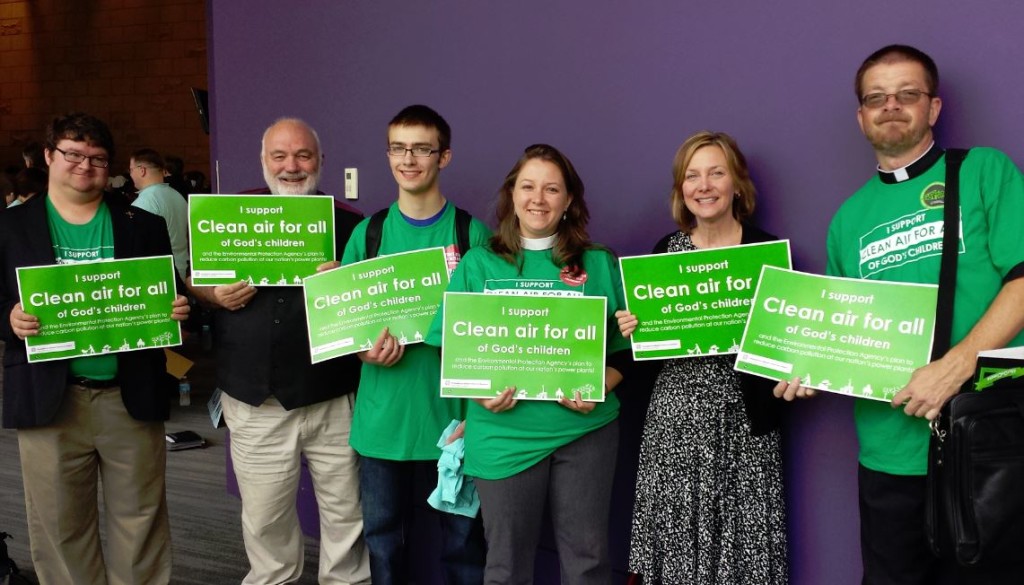Yesterday, Lutherans continued their testimonies at the Environmental Protection Agency. Our speakers were notably engaging, energized and forthright in their discussion on how climate change is an important matter in their community. Their testimonies gave an excellent impression, demonstrating how Lutherans are active and concerned about protecting God’s creation. Here are some excerpts of their testimonies:
7/30 Washington D.C. Hearing
Mary Minette, Director of Environmental Policy
…We know that climate change has many other public health impacts, and that those impacts fall hardest on those who are most vulnerable, including children and the elderly, and particularly hard on vulnerable people who live in poverty. And we are already seeing the impact that a changing climate can have on food production and food security, with the drought in California as only the most recent example.
…The arguments of economic impact and job loss also ignore the costs of doing nothing, of allowing global temperatures to continue their upward trend and earth’s climate to become less and less predictable. Losses in productivity, increases in food prices, dwindling supplies of water, will all have steep costs and huge economic impacts, together with the continued cost of responding to ever more frequent weather disasters.
We are faced with an important choice—we can act now, and help to protect future generations and God’s creation from the worst impacts of climate change, or we can fail to act and let our children and the earth suffer the consequences. This rule is a critical step in the right direction.”

Mary Minette testifies before the EPA pannel
7/31 Pittsburg, PA Hearing
The Rev. Paul Lubold
I share their concern about the impacts of global climate change, especially as it takes its largest toll on “the health of young children and their families, disproportionately affecting the poorest among us,”
The Bishops [Elizabeth Eaton] wrote: “Multi-year droughts, sea level rise, extreme weather events and increased flooding dramatically affect communities internationally, from the… north slope of Alaska to Midwestern farming families to our brothers and sisters in the Philippines… We recognize with concern that climate change particularly harms low-income communities.”
I also want to speak personally in support of the Clean Air plan… As a Christian, I believe that God created the earth, sky and seas. And that as creation was happening God declared that it was “good.”
God then entrusted humans with “caretaking” responsibilities… But unfortunately, we’ve not been all that ‘responsible.’ Rather than use natural resources, like fossil fuels, in a sustainable way, we have often squandered them for selfish, profit-driven reasons… If we who were entrusted to be “care-takers” of creation have an opportunity to make changes that would insure an environment that is ‘more healthy’ for our children and grandchildren, then we have a moral imperative to do just that.

Lutheran Advocactes show support in Pittsburg
8/1 Pittsburg, PA Hearing
The Rev. Dr. Leah D. Schade, PhD
“…Yes, the new EPA rules will force Pennsylvania to reduce its air pollution and burn less coal. But how we adjust to less coal will make all the difference. If we build more renewable energy infrastructure and increase energy efficiency, our airwill be cleaner and greenhouse gases will be reduced. But if we replace coal with fracked gas, we will only be making our air and atmosphere worse. These rules, as written, only codify the transition from coal to gas that is already underway. As well, the rule gives implicit consent to burn more trash, tires, coal sludge, and other forms of toxic waste for electricity. So while I believe the proposal is a good first step, it is not only inadequate, it will have the unintended consequence of replacing one source of dirty fuel with many others.
I am committed to helping people of faith learn how to do their part to care for God’s Creation and support eco-justice issues. I call for the EPA to not only stand its ground with this rule, but to actually strengthen and expand it in order to put in place the strongest protections possible to defend public health, the fragile atmosphere of our planet, and the communities that will bear the costs and suffering from our addiction to fossil fuels and greenhouse gases.”

Rev. Schade speaks on the Clean Power Plan
Pittsburg, PA Hearing
Cricket Eccleston Hunter, Executive Director, PA IPL
“Climate change magnifies ills that faith communities have long responded to: food insecurity, water insecurity, disease, conflict, and many natural disasters, and we are stepping up again. We know that the EPA’s charge is to protect the health and welfare of Americans. We also know that the health and welfare of other beings and other peoples is at risk. We act for them as well.
…Coal representatives will tell you that acting responsibly on carbon pollution will steal jobs from communities on the economic edge. They won’t say that those jobs have never driven executive decision-making. They won’t mention that those jobs are already in a decades-long decline, or that the decline is about bottom lines, not about federal policy nor even booming gas. Combined coal output from West Virginia and Kentucky has held nearly steady since 1983, but mining jobs have dropped by half. We do need to help generate new paths for employees and communities that currently depend on fossil fuels. Holding tight to the diminishing fuels of the 18th and 19th centuries instead of reaching forward to the power of the 21st is not the way to do it.
Like our faith communities, the United States is explicitly founded on values. As such, we have a unique opportunity to lead according to those values. When we don’t, as we have not on climate change, our silence is deafening. When these proposed standards were announced in June, the world took note. China immediately began hinting at an absolute cap on its own carbon emissions, and has since created 8 pilot carbon trading markets. Christians talk about acting as a “city on a hill” — when we act as we should, using the gifts we’ve been given, the example shines, and draws others in.”

You can add your voice to the conversation too! Send your comments to the EPA through our Action Center, and tell them that you support the new Carbon Rule on Existing Power Plants to protect our children’s future!





